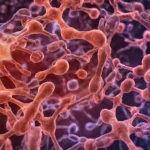29 December 2023
From calorie restriction to gene therapy, here are the breakthroughs that made headlines in 2023
Aging, a natural part of life, has long been a subject of fascination and exploration. In 2023, researchers continued to delve into the mysteries of aging, seeking ways to extend human lifespan and improve overall health. From calorie restriction to gene therapy, here are some of the top anti-aging stories that captivated readers throughout the year.
Moderately cutting calories activates healthy aging genes:
While many anti-aging studies focused on developing treatments to reverse the effects of aging, one study took a different approach. Researchers found that a moderate reduction in daily caloric intake activated biological pathways associated with healthy aging. By reducing calories by just 12%, gene expression was significantly altered, including inflammation-related genes that have a strong connection to aging.
Stay well hydrated to avoid cellular aging (and live longer):
In a groundbreaking study spanning 25 years and involving over 15,000 participants, researchers discovered a link between hydration and biological aging. Those with higher serum sodium levels, indicating dehydration, were more likely to present as biologically older than their chronological age. The study emphasized the importance of staying well-hydrated by drinking plenty of water to promote longevity and overall health.
Protein boost improves brain function in older monkeys:
Scientists explored the potential of a protein called klotho, produced by the kidneys, to combat aging. By injecting older monkeys with klotho, their cognitive function improved by approximately 20%. This finding raises the question of whether klotho could have similar effects in humans and potentially enhance brain health in aging populations.
Natural amino acid rolls back the hallmarks of aging in animals:
Researchers investigated the effects of taurine, a naturally occurring amino acid, on the hallmarks of aging. Taurine supplementation in mice, monkeys, and worms resulted in improvements in chronic inflammation, DNA damage, and the clearance of senescent cells. These animals also exhibited increased lifespans, suggesting that taurine may hold promise as an anti-aging intervention.
AI identifies natural anti-aging chemicals:
Artificial intelligence (AI) was employed to identify compounds that could potentially target and clear senescent cells. Researchers trained an AI model using academic papers, patents, and FDA-approved drugs to identify three natural compounds – ginkgetin, periplocin, and oleandrin – that showed promise in removing senescent cells without harming healthy ones. These findings open up new possibilities for developing targeted anti-aging therapies.
Reversing aging by substituting gene therapy for a chemical cocktail:
Scientists sought alternative methods to reverse aging that did not rely on gene therapy. By exposing cell samples to different chemicals, researchers identified a cocktail that could restore cells to a more youthful state. This breakthrough offers a potential avenue for developing non-genetic interventions to combat aging.
A genetic tweak lengthens a cell’s pathway to death:
Researchers discovered a gene that controls cell aging and successfully rewired it to delay cell death. By manipulating this gene, cells took longer to reach the endpoint of cell death, potentially extending their lifespan. Although this technique has only been tested in yeast cells thus far, it opens up new possibilities for understanding and manipulating the aging process.
A pathway that controls aging:
In a study using the roundworm C. elegans as a model system, researchers uncovered a specific RNA silencing pathway that protects genomes from the mutagenic effects of jumping genes. By downregulating these mobile jumping genes, the worms’ lifespan was extended by approximately 10%. This finding provides experimental evidence of a pathway that controls aging and offers insights into potential interventions for extending lifespan.
Conclusion:
The year 2023 witnessed significant strides in anti-aging research, from calorie restriction and hydration to protein boosts and genetic tweaks. Scientists explored various pathways and interventions to combat the effects of aging, offering hope for a healthier and longer life. While many of these breakthroughs are still in the early stages of development, they pave the way for future advancements in the pursuit of longevity and improved quality of life. As researchers continue to unravel the complexities of aging, the possibilities for anti-aging interventions and treatments are expanding, bringing us closer to a future where aging may no longer be an inevitable part of life.



